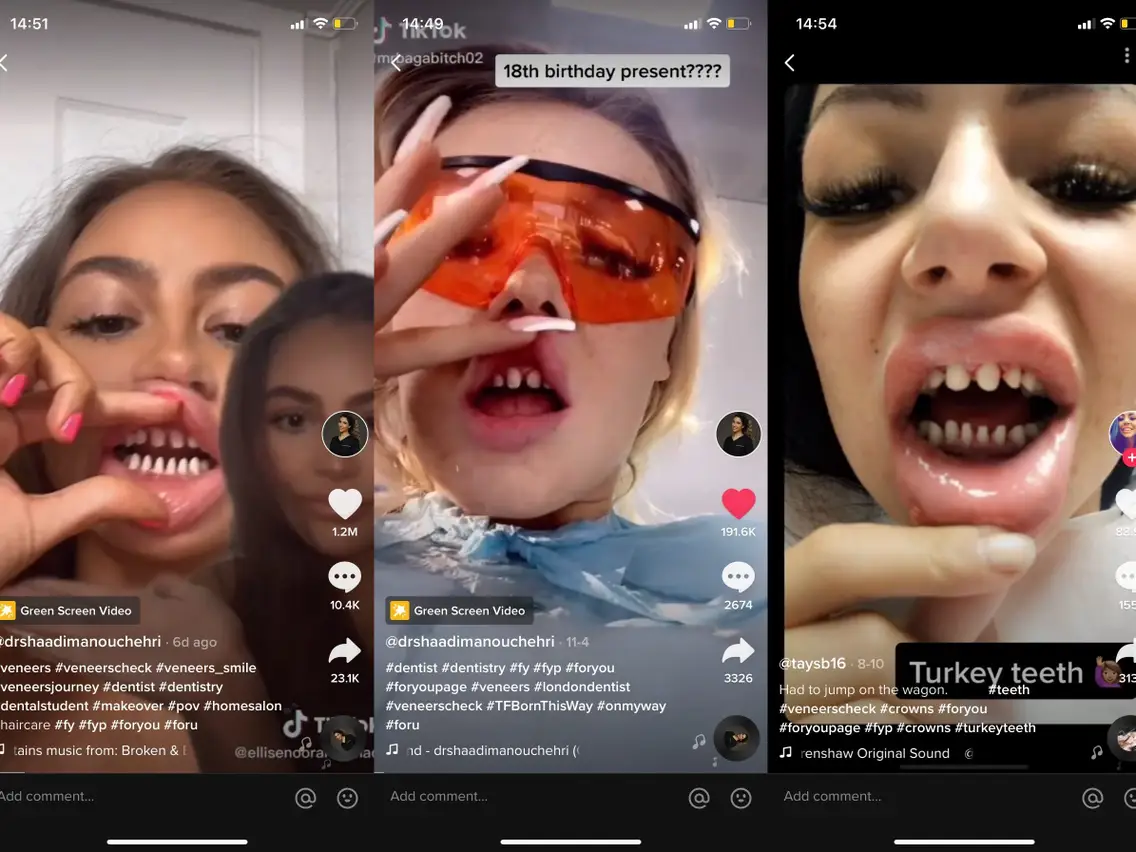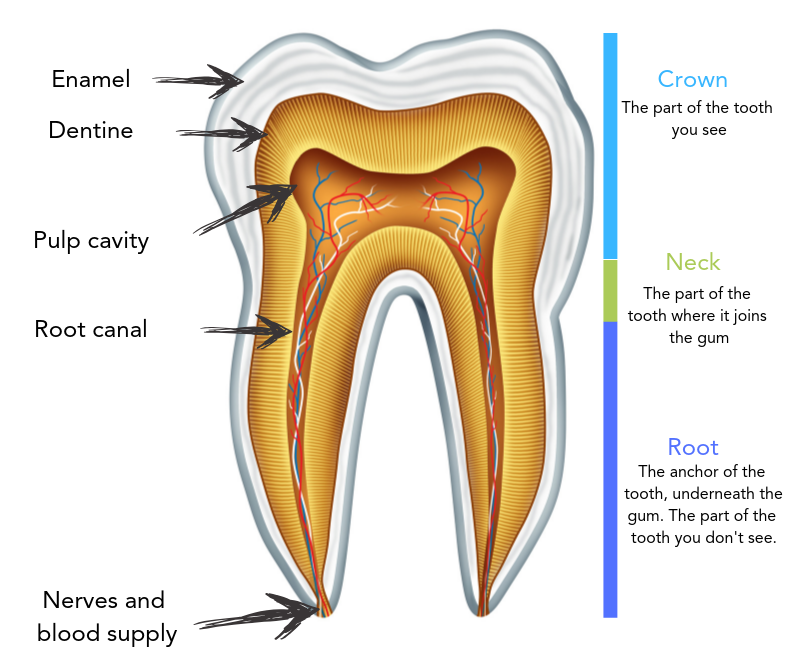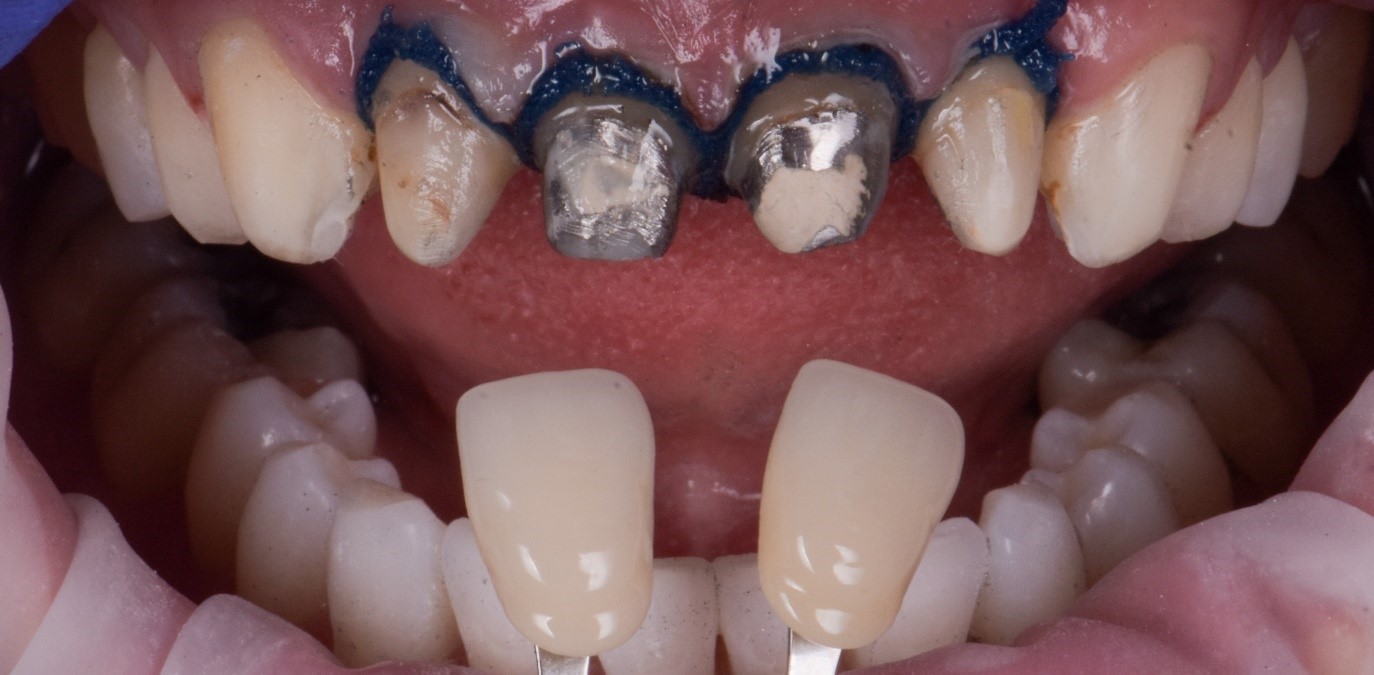A great deal of Brits are travelling to Turkey for their smile makeovers and dental treatments. Reasons being? Cost, the ‘holiday experience’ package, and being swept up with the social phenomenon that is ‘Turkey Teeth’.
The main treatments that Turkey tend to offer to patients are dental implants (All-On-4) and veneers or crowns. Many famous faces have flown over to Turkey to have their teeth enhanced but be cautious of the advertisement that this is on a parallel with treatment in the UK, as there are many long-term effects that can be detrimental on your teeth for years to come.
Are they crowns or Veneers in Turkey?
Although they may be advertised as veneers, do check with the dentist whether you will be having crowns or veneerings, as the difference in reduction of natural tooth for these two options is hugely different.
- 5-15% reduction (by volume) for veneers
- 50-70% (by volume) for crowns
Rumour has it that not many dentists in Turkey will inform you of the difference in this treatment, and that’s where the ‘peg teeth’ look comes in, for when the dentist is preparing your natural teeth for crowns.
Turkey Teeth have become extremely popular amongst young people, but why?
Flash, easy transport, low cost and a great location! The viral videos on TikTok and Instagram show people sharing their new teeth or pegs between appointments, encouraging others to have the same experience. This would be acceptable if there was not such an aggressive approach to tooth reduction/filing, as seen by those having crowns.


Risks of getting veneers in Turkey
- Risk to nerve vitality – evidence shows 15-20% loss in crowns (Saunders et al), 5% for veneers (Peumans et al).
- Crowns usually placed instead of veneers – were you aware of this, did you consent to this?
- Recall – how often will you return to Turkey for maintenance?
- Remedial treatment in the UK can be very challenging as the work was carried out abroad.
- Aesthetics – will the laboratory use a layering technique or not?
- Quality – From what is on TikTok and other social media platforms, most teeth in Turkey are made via CADCAM in Zirconia. This is an opaque white metal, technically speaking.
- Longevity – No one in the UK really knows what techniques they’re using, but from the YouTube and social media videos, if the approach for bonding is the same as their preparation techniques, it’s not likely they will last as long as UK or USA veneers/crowns.
- Dentolegal – Your rights and protection in the UK are much greater than in Turkey, so your ongoing care and maintenance is covered whilst you reside in the UK.
- Pain – many people are reporting pain shortly after returning to the UK that does not subside.
UK vs US vs Turkey teeth
The UK and the US are well aligned, but the main difference is that the UK prefers composite bonding in its current trend with some clinics being experienced in both such as ours, Marylebone Smile Clinic. Check our page regarding our dental veneers made in London.
The USA still favours ceramics (crowns/veneers), and mainland European countries such as Germany, Switzerland and Italy are balanced between the two approaches.
Turkey generally only favours ceramics, and in particular CADCAM systems for a one-week turnaround.
For all these countries, aesthetics varies across the board. Where you sit on the spectrum of colour and shapes of teeth is for you to decide with your dentist.
What are temporaries/provisionals/trial smile/3D preview?
Temporary teeth are usually made out of Bisacryl/PMMA, which is a resin base with pigmentation to look like teeth. They are flexible, malleable and generally have good aesthetics.
What is the purpose of temporaries?
- Aesthetics: guiding and previewing the result. Seeing the final result before it’s made allows modifications in real time before approving or moving forward. It ensures the positions, shapes and colours are to your liking. This is part of our veneer process at Marylebone Smile Clinic, and contributes to our high success rates.
- Protection: During the time between the preparation and the fit, your teeth need protection to lower the risk of nerve damage, or devitalisation. They protect and seal the teeth against heat, cold, moisture and bacteria that would otherwise increase the risk on the tooth. Pascal Magne was one of the first people to report this risk in dental literature.
- Sensitivity: it’s the worst! Exposed teeth are sensitive and should be protected to preserve the nerve supply, and allow you to recover between appointments. The tooth diagram shows how the anatomy of the tooth is designed to be protected by a white outer element known as enamel. This can be replaced with ceramic or temporary material but if the yellow part is exposed, it creates sensitivity.


What’s wrong with this video?
@mrnathanweston When ya temp turkey teeth fall out😂 #turkey🇹🇷 #turkeyteeth #teeth #dentist #fyp ♬ original sound – user1077689986217
There are several problems with this video. Firstly, we think it’s staged, perhaps for hits and entertainment purposes. The catch is that he is exposing his teeth to the ill effects described earlier as well as the toxic chemicals in cigarette smoke.
Finally, his temporaries fell on to the floor and we assume he will pick them up and reinsert them. Oral hygiene is critical before, during and after veneer/crown treatment, and it is clear in this case that it was not a priority.
Aesthetics – how going super white isn’t always a good idea
Super bright teeth can look great on camera and in person, but you will notice from dentists’ shade guides that there are several colours that do not exist in nature. These colours are considered artificial and will be noticed by people, which you may be aiming for in a smile makeover.
We can support you in either situation, but we suggest that you consider how you may feel in a few years when you are a little older. Teeth are made to last over many years and decades, so make a wise decision at the first instance.
Heavy reductions- Tooth Reshaping – Preparation – Filing – Pegs
@tairoberts98 Get your teeth done but make it fun 😂 #turkeyteeth #fyp #foryoupage #comedy ♬ original sound – Tai Roberts
Why prepare at all?
This is to make space for the ceramic, aesthetic alignment, technical start and end points for manufacturing. However, there are systems which cover non-prep veneers, the main one being Lumineers Zero Prep. However, they can then appear ‘bulky’ and more ‘piano key’ looking.
The main problem with heavy reduction is it shortens the overall lifespan of the teeth. This then can result in the cost over long term to be a lot greater. Let’s assume each set lasts 10 years to be pessimistic. And if you have them placed at age 20, that’s 5 sets by 70. You can’t have five sets of crowns – usually most dentists will use 2-3 sets before significant damage is caused and the tooth is lost.
If you have veneers, you can have up to five sets before moving to crowns where you will have two-three sets before you risk losing teeth. The two images show a comparison of crowns prepared abroad vs veneers prepared in London, UK. As you can see the London Veneer preparation preserved 95% of the teeth and is within the enamel layer, reducing the risk for the patient.
The first image shows a loss of the majority of the tooth, and the dark front two are that colour as the nerves have been removed, which is not a good thing for a tooth long-term as it weakens it significantly.




Cost comparison UK vs Turkey
Seeing a dentist is a regular twice-yearly exercise on average – due to clinical responsibility, British dentists cannot correct any issues as and when they arise, so will you travel back to Turkey twice yearly for these dental health checks? Most people will not, and as a result your healthcare needs will be met in the UK. Often the result is replacing all the work done in Turkey.
And if they have filed the teeth for crowns, this reduces the lifespan of the teeth, dramatically accelerating the loss of that tooth. Later in life, lost teeth could need replacing with implants or bridges, that are much more costly that veneers or crowns. The message here is that the initial cost seems low, but if it is not performed well and not maintained, you will be affected by remedial and reparative dental work. This will certainly not be the most cost-effective option for you.
Below we describe a typical series of events over three decades when maintenance is needed for cosmetic dental work performed abroad.
| Age | Turkey | Total | UK | Total |
| 20 years old | 20 teeth (crowns) at £200 per tooth | £4000 | 20 teeth (veneers) at £795 per tooth | £15900 |
| 30 years old | 20 teeth (crowns) at £200 per tooth | £4000 | 20 teeth (veneers) at £795 per tooth | £15900 |
| 40 years old | All on 4 Implants | £8000 | 20 teeth (veneers) at £795 per tooth | £15900 |
| 50 years old | Implant failure. Now requiring bone grafting, appliance conversion therapy and/or zygomatic implants | £40000 | 20 teeth (veneers) at £795 per tooth | £15900 |
| 20 teeth (crowns) at £795 per tooth | £15900 | |||
| £56,000 | £79,500 |
Is it cheaper in Turkey, all things considered?
Yes, it is cheaper in Turkey in the majority of scenarios, but what will you sacrifice for it?
- Pain – patients report more pain from Turkey Teeth than average.
- Loss of your natural teeth – Although you may not like your own teeth, natural teeth are always going to be nature’s best invention for our oral health. Dental work will feel and function inferiorly to natural teeth in many instances.
- Aftercare – Should you experience any of the above problems or fracture and loss of your veneers/crowns, it can be extremely difficult to rectify from a clinic based abroad. The recent travel restrictions and issues around international conflict zones could cause disruption to you seeing a dentist, not to mention that the regulatory protection you have in Turkey is much weaker than in the UK. The Irish Dental Association corroborates this with a statistic based on their data that from 300,000 people who went abroad for dentistry, 75% required remedial treatment when returning to the UK.
- Consent – We often find that the understanding of the treatments sought by patients who go to Turkey is limited, and therefore, on occasions when they initially think they are having veneers, it can actually be crowns, and even crowns with root canal treatment.
- Aesthetics – Turkey promotes a very bright and white approach to how teeth should look, which is great for some who would like that look, but this can also come across as fake and/or unnatural. Replicating natural teeth requires a specialised approach involving complex shade matching methods and shape maps of teeth. Teeth are not one colour, but exist with specific values, hues, chromaticity, opalescence and internal effects. The precise balance of these is determined by your age, what you would like your smile to appear like in person and in photos/videos and your adjacent anatomy. We can reproduce teeth in the same appearance of Turkey Teeth, but in a way that maintains an element of naturality, for aesthetics as well as the ongoing health of your teeth.
Why are veneers cheaper in Turkey?
It is due to the process they employ to manufacture the veneers, as they are made with a machine via CADCAM, rather than customised by hand with feldspathic porcelain. This makes for a very efficient workflow but can detract from the aim to recreate natural teeth.
The operating costs in Turkey may be lower from the premises to the equipment used. It is well known that Turkey Teeth are the lowest cost veneers on the planet, and whilst they may save you money, the quality, longevity and safety may not reflect that. The saying that ‘you get what you pay for’ is true in this case.
Conclusion
Research, research, research. Look for before/afters and testimonials. Contact our expert cosmetic dentists of London at Marylebone Smile Clinic about all things cosmetic dentistry and especially Turkey Teeth. Your treatment should be for the long term and making the right decision for you is one of our aims.
The phenomenon ‘Turkey Teeth’ has unfortunately caught all dentists in Turkey within a movement that may not reflect all clinicians/ceramists in that country. In all nations across the world, there will be many individuals that are excellent operators that are not representative of what is shown on social media. We do not intend to misalign these dentists with the ones responsible for the ‘Turkey Teeth’ approach and hope that they can assist us in strengthening the consent process an reduce the level of intervention necessary for the provision of cosmetic dentistry.
FAQ
What are Turkey Teeth?
Turkey Teeth refers to the full sets of aggressively filed crowns or veneers that young people receive after travelling abroad to Turkey for medical tourism.
How long do Turkey Teeth last?
If good oral hygiene is maintained, Tukey Teeth are reported to last 5-10 years.
However, this would dependant on the specific dentist and techniques used by the dentist to bond and refine your teeth. The longevity reported by UK and US based research is 10-15 years.
How much does it cost to get veneers in Turkey?
Turkey mostly offers ‘all-inclusive packages’ to its patients, and for a full set (upper and lower) ceramic, it is set at an extremely competitive price of around £200 per tooth for crowns, sometimes less.
Why are teeth cheaper in Turkey?
There are many reasons the prices for dental treatment in Turkey are cheaper than the UK or the US, the main one being operating costs to run a dental practice in Turkey is less costly than other countries.
Another reason is the Turkish government are very much in favour of medical tourism, and therefore support a lower running cost for materials such as ceramics. For you as patients, this reflects in the laboratory cost being significantly less than counties such as the UK.
Why do celebrities get their teeth done in Turkey?
Celebrities seek dental treatment in the same approach that the rest of us do! Experience, cost, and enhancement to their smile, or a transformation. These are the main factors celebrities travel abroad for these treatments.
Is it safe to get your teeth done in Turkey?
Consider that you are sure what treatment you are having, as many patients we speak to do not know the differences between veneers, crowns and the effects of root canal treatment.
There have been many instances of bad outcomes from Turkey, but this is not specific to a particular clinic or dentist, but an indication of the results we see in the UK and on social media.
However, there are a lot of great dentists in various countries, and essentially you need to ensure you are finding the right dentist that suits your needs, understands your desired outcomes and that you will feel you’re in safe hands with.
I’m not happy with my veneers I got in Turkey, what can I do?
Initially, the best option would be to contact the dentist who originally carried out the treatment in Turkey. If you find difficulty in reaching them, or they are unable to help, which can be common after returning to the UK, then the other option is to try and find a cosmetic veneer dentist within the UK who will be willing to assist.
Many highly experienced cosmetic dentists in London and the UK will ultimately try their very best to help you achieved your desired result, however this then can come with an additional cost, including replacing the veneer/crown entirely.
How do I find a good veneers dentist?
Make sure you do your research when it comes to deciding on which dentist/dental practice to choose from. A great tool in helping you decide is looking at patient reviews, star ratings and a background profile of the dentist that will be doing your treatment on their website.
What material is used in Turkey Teeth?
They use a CADCAM based ceramic of varying composition. It is strong and durable but tends not to be personalised or customise to the same degree as a pressed and layered approach.
What are Turkey Teeth pegs?
This is a slang term for the shape of the teeth after they are shaved down for crowns in Turkey. It is not good for a tooth long term to have such dramatic filing, especially at a young age. There are more preservative options available such as veneers.
Are dentists in Turkey bad?
No, in every country there are talented and excellent dentists, including Turkey. The term ‘Turkey Teeth’ in this article is describe the phenomenon of young people going to Turkey to have full sets of aggressively filed crowns or veneers.
We do not intend to group all Turkish dentists as the focus of this informational article, but merely to advise people on doing their own research in detail. We apologise to those dentists who are provided a high standard of clinical dentistry who have been caught in the cross-fire.
Which country is best for dentistry?
The top dentists in the world are located in Switzerland, Germany, Japan and Singapore. There are also excellent dentists in the UK, USA, France, South America as well as Australia.
Want to know more?
Get in touch to enquire about our services or to book an appointment.